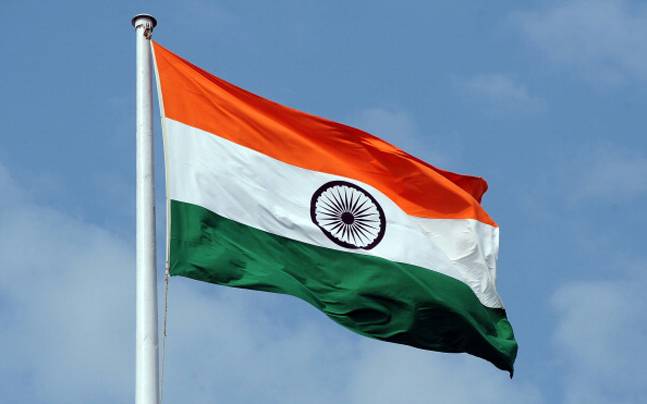 Regarded as a hangover of the British colonial legacy, the Commonwealth of Nations (CW) organization has rarely managed, in recent times, to be strategically influential or economically vibrant despite its various functional arms. However, a shift in the geostrategic atmospherics could well prove conducive for this largely moribund 52 nation forum and rejuvenate it in what is being loosely termed as Commonwealth 2.0. But this process may discard its London based centricity and traditional British paternalism in favour of a leadership role for India the “Jewel in the crown of the erstwhile British Empire”.
Regarded as a hangover of the British colonial legacy, the Commonwealth of Nations (CW) organization has rarely managed, in recent times, to be strategically influential or economically vibrant despite its various functional arms. However, a shift in the geostrategic atmospherics could well prove conducive for this largely moribund 52 nation forum and rejuvenate it in what is being loosely termed as Commonwealth 2.0. But this process may discard its London based centricity and traditional British paternalism in favour of a leadership role for India the “Jewel in the crown of the erstwhile British Empire”.
Admittedly, the concept is still in discussion stage and talks on these lines are likely to be initiated at the forthcoming CHOGM (Commonwealth Heads of Government Meeting) to be held at London this year. The aim of this summit is ostensibly to infuse more dynamism though the stated theme continues to be the bland understated “Towards a common Future” a topic to be covered under “trade, prosperity, security, and sustainability” sub headings.
The 2018 meeting itself is somewhat of a providence for UK as Vanatu – the original host fell out from hosting the biennial summit due to cyclone Pan. This led to Britain donning the mantle of the host – a position that bestowed the privilege of setting the crucial agenda for the meet.
The move for reorganization or reinvigoration is the purported brainchild of Lord Jonathan Marland who is the Chair of Commonwealth Enterprises and Investment Council (CWEIC). This move has been strongly supported by Manoj Ladwa, an influential member of its board, CEO India Inc and more importantly who helped Prime Minister Modi with his 2014 election campaign and was the main organizer of Modi’s triumphant rally at Wembly stadium in 2016.
The proposed contours of the new Commonwealth (called 2.0) indicate that the organization should be re-imagined as a powerful trading bloc with India as a principal trading hub. The idea in many ways encourages India in assuming a more overt leadership role while emerging as a principal hub of trade and commerce. Unfortunately, the Commonwealth has never been regarded as an efficient trading bloc even though it has a total GDP of 14.6 trillion $ (2014 estimates) with phenomenal potential for growth and trade. For example Canada trades 3.5 bn $ worth approximately with US daily while with India it is a meager 8bn$ worth annually.
Britain is keen that any reorganization of Commonwealth has to involve India with its growing economic and strategic clout- in a prominent role. The rationale for this keenness is not difficult to guess. Britain is closely visualizing a post Brexit scenario in which its international linkages and relations other than with EU will assume salience. Renewed economic relations with countries that uphold similar values and share a common heritage would not only be achievable but immensely fruitful. Probably that is why the British Govt has been talking of “Global Britain” which would be independent of EU and yet promote its interests, values and trade the world over. Unfortunately, such talk has not been backed by concrete initiatives and this reorganization of CW could well be its significant step.
Hence , Britain is keen to have Mr. Modi attend the next CHOGM and had sent Prince Charles in November 2017 to formally invite him – an invitation that Modi had supposedly accepted. There were further media speculation that the Prime Minster and the visiting British heir apparent discussed the future of the Commonwealth and probably its reorganization.
It is with such long term goals in mind Britain had decided to withdraw from the ICJ judge elections in a bitterly contested elections at the UN in favour of the Indian candidate.
Till recently the Indian Government had been relatively indifferent towards the organization. This apathy has been evidenced during the last few CHOGMs which were repeatedly missed by Indian Prime Ministers. Modi didn’t attend the Malta summit in 2015 and earlier Manmohan Singh did not attend both 2011 and the 2013 meetings. Further India did not even send its commerce Minister Nirmala Sitaraman for a CW meeting of Commerce ministers recently choosing to send a bureaucrat instead.
However, with an altered geo strategic scenario, it is now realized that India’s strategic interests in this organization are manifold. Firstly, CW is unlikely to have China as a member which excludes them from applying any influence in its affairs. Secondly the BRI and the MSR, both Chinese trade initiatives have the potential to become major trading blocs – if successful. Again both these have been rejected by India though they threaten to sideline Indian trade.
Apart from India, other Commonwealth countries such as Australia, Malaysia and Singapore are all under immense economic pressure from China. A reinvigorated Commonwealth could well prove to be somewhat of a counter to these Chinese initiatives and reduce its economic onslaught.
But despite these obvious, advantages a lot hinges on the acceptance by other CW members to the new contours of reorganization creating new power equations with India as a leader. Ultimately, the question remains can political unanimity be achieved and can CW emerge from its moribund past and become vibrant – only time will tell.





Article about Bengali Obsession with UK, China and Bengal.